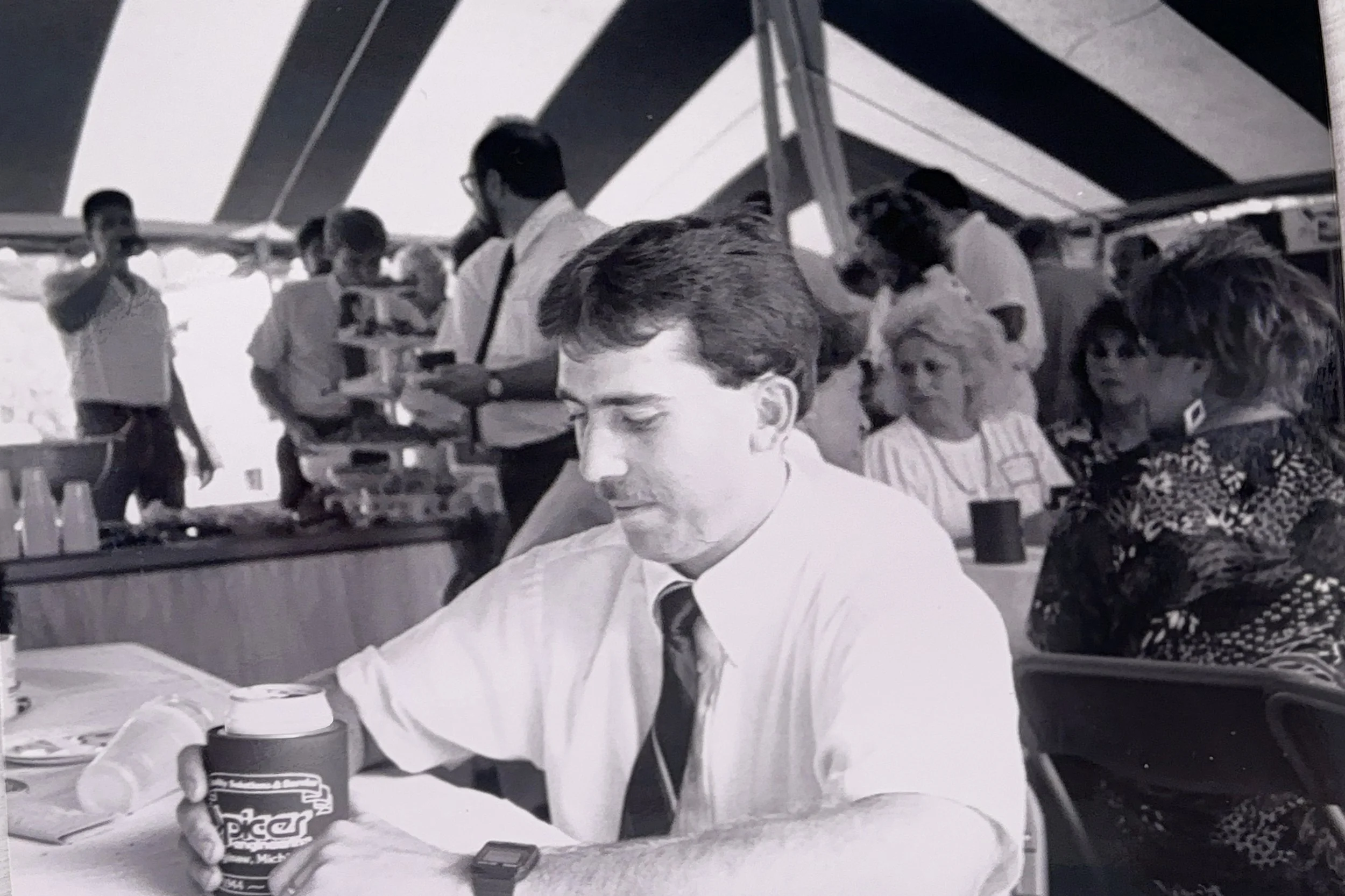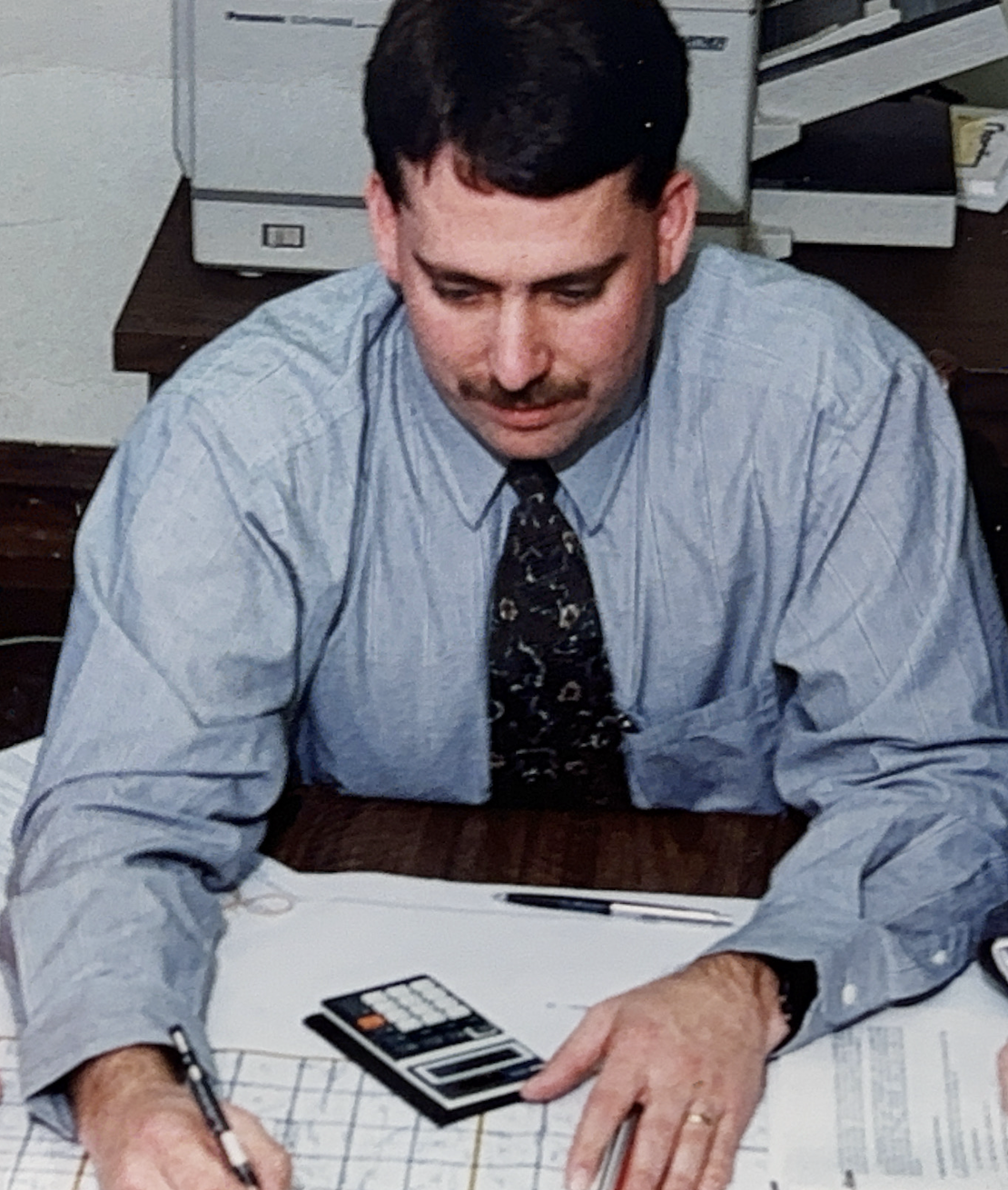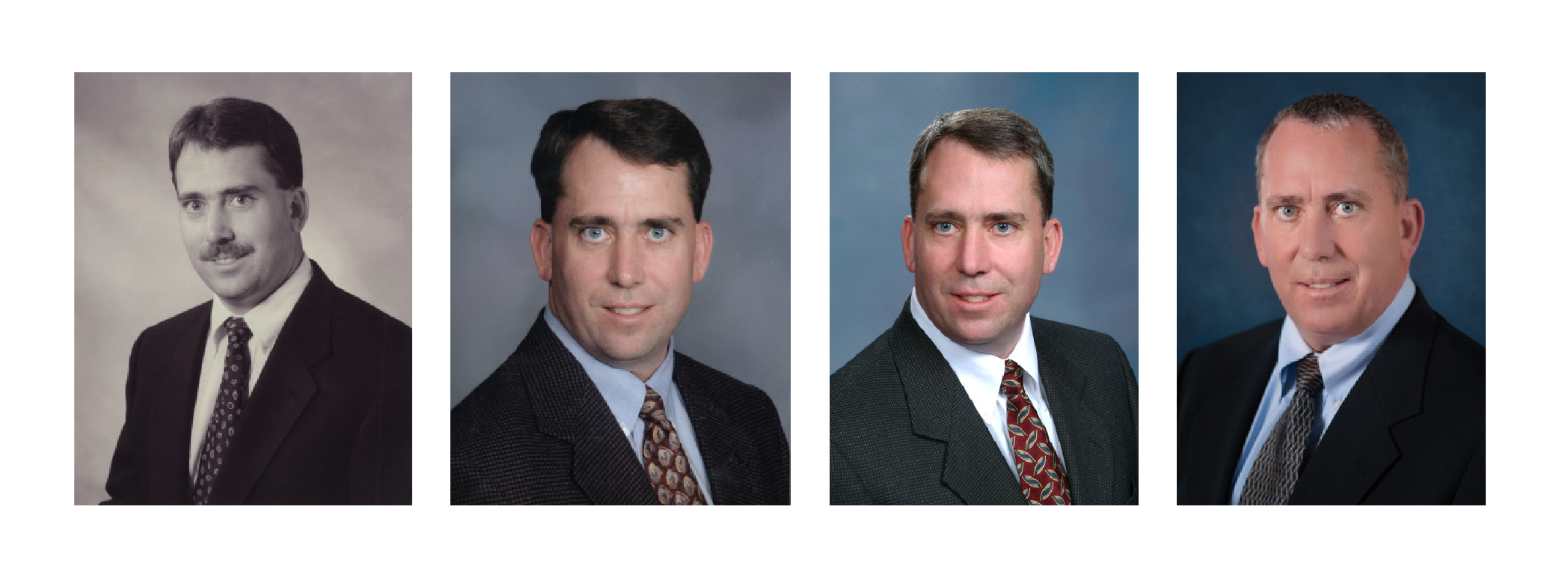Larry Protasiewicz
Larry Protasiewicz — Long-time Spicer Group principal retires from consultant side of life
After 36 years of hard work and leadership at Spicer Group, Larry Protasiewicz, P.E., has retired, at least from the consultant side of the profession. His dedication at Spicer Group is known for forging new relationships, incorporating cutting-edge technology into projects, and developing design standards still used today—all efforts that contributed significantly to Spicer Group’s brand and growth.
Protasiewicz became an Associate of Spicer Group in 1991 and a Senior Associate in 1994. He was named a Principal of the firm in 1996. He was appointed as Spicer Group’s Chief Financial Officer in 2017 after serving as Vice President for 11 years. He was a member of Spicer Group’s Board of Directors and is credited for pioneering and continuing Spicer’s legacy as a leading water resources firm.
But Protasiewicz’s journey to the engineering world started decades ago as a young boy in Pinconning. At the age of five, he got a taste of being a farmer while picking peppers and pickles. Roughly a decade later, his family moved to Imlay City, and the farming flame continued to burn going into high school.
“On my first day of high school, I met Ray Bollaert, who was a Future Farmers of America (FFA) instructor,” Protasiewicz said. “He became a pretty significant part of my life.”
Bollaert mentioned to Protasiewicz that Lee Penzien was looking for a farmhand to work on his vegetable farm.
“I rode my bike seven miles each way to work on that farm,” Protasiewicz said.
Penzien Farms was a privately owned farm that provided vegetables to Flint and Detroit, including carrots, potatoes, onions, and radishes. Protasiewicz started out hoeing weeds and harvesting the crops, but by the time he graduated high school, he was putting out three semi-truck loads a week of vegetables—from planting to harvest.
“I was at one time known as the fastest radish buncher in the world,” Protasiewicz said.
Upon graduation, Protasiewicz applied to Kirtland Community College (KCC) after heavy encouragement from his mother. He still worked on the farm doing onions and carrots in the fall and winter.
“I had no clue exactly what I wanted to do, but I pursued an associate’s in science, and by the end of the first year, I was tutoring students and being a teacher’s assistant in the biology and chemistry lab,” Protasiewicz said.
His biology teacher suggested he should go into engineering, even though he had no clue what engineering meant. In 1984, at the end of his two years, he applied to Michigan Technological University, where he was offered a transfer scholarship for full tuition. However, he declined the offer and went to Michigan State University (MSU) instead.
“My first orientation for transfer students was an engineering open house, and when I walked through the door, there was a nice woman named Bev Anderson sitting at the first table,” Protasiewicz said. “She was at the agricultural engineering table, and I never left that table. I decided right there that was going to be my thing.”
Anderson gave Protasiewicz Dr. George Merva’s phone number and said he was looking for a student intern. Merva asked an interview question that Protasiewicz still uses today.
“Could I make him an apple pie?” Protasiewicz said. “Even though I never had, I told him yes, I’ll bake him an apple pie because I knew I could figure it out by finding a recipe and following the directions.”
Protasiewicz said he feels this is a great question because the response shows a person’s character and level of confidence in their abilities regardless of any experience or gained knowledge.
Protasiewicz was hired and spent his first six months typing reference cards of all of Dr. Merva’s reference documents into a program called Wordstar—a DOS program. Dr. Merva wanted them all digitally organized into a library system so he could search for everything done by him. This led to Protasiewicz being able to type faster than he could think, which helped him greatly throughout his entire career, not just in typing fast, but accurately.
“Have you ever typed a reference card?” Protasiewicz expressed. “It’s a period this, capital that, colon here, period that.”
While working with Dr. Merva, Protasiewicz jointly published several papers and even assisted in the development of the falling head permeameter, which measures both vertical and horizontal conductivity of soils. At the time, this was a leading-edge technology that calculated the ability to move water through soil in the field. Protasiewicz even helped Dr. Merva develop his prototypes.
He was discouraged during the first semester at MSU because it was a tough transition from the small KCC to the much larger 300-person classes at MSU, and engineering classes required him to study—something he wasn’t used to. He had to drop a class to stay tuned in but eventually figured out the program as he acclimated to the new environment—graduating in two years with a bachelor’s degree in agricultural engineering, with a focus on soil and water.
While pursuing his master’s degree at MSU, he worked with Dr. Harold Belcher to develop subsurface irrigation systems, which required studying and understanding the benefits of managing the water profile in the soil. In his spare time, he worked at what was then the busiest Burger King in the world, working 12-15 hour shifts on Tuesdays and Saturday evenings.
It was then that he was hired by Spicer Group while advising a farmer with sub-irrigating fields in Frankenmuth.
“At the time, our water resources group had three staff members, and they were looking for another engineer to join their team, one of them being the brother of Dave Armenharmer, the farmer in Frankenmuth I was assisting.”
In 1988, Spicer Group’s past president, Dale Deibel, called him in for an interview. Shortly after, he received an offer in the mail but hadn’t finished his master’s yet.
“I had all of my coursework done but was still writing my thesis,” Protasiewicz said. “I would try and try but couldn’t get it done. Two years after I was hired, Dale and past president Don Scherzer allowed me to leave my job and dedicate full-time effort to completing my thesis. They knew it was bothering me, and they allowed me to leave work while they took care of all my responsibilities at work.”
As Protasiewicz advanced at this job, he became acquainted with then Bay County Drain Commissioner Bill Rosebush. When first meeting him, Rosebush, smoking a pipe, told Protasiewicz he was going to teach him how to do his job, from design to cost estimating, building relationships, and communicating with people.
“He literally took me under his wing and taught me how to do everything; he showed me a lot of important things,” Protasiewicz said. “He was a great mentor. He really helped me understand the business.”
Protasiewicz said that internal mentors like Dale Deibel, whose sheer level of professional encouragement and support, and Don Scherzer’s true-blue attitude, hard work ethic, and never-stop mentality are marks that will be left with him for a lifetime.
Protasiewicz’s secrets to success?
“People need to understand that we are always teaching people; if you are not mentoring someone, if you’re not teaching or finding your replacement or your next person or employee or teaching them, you’re not doing your job,” Protasiewicz said. “You’re holding them back from growth. That is one of my biggest life lessons to share.”
Protasiewicz was recently elected as the Mason County Drain Commissioner, where he continues working with people, solving problems, and moving storm water the best way possible.
Thank you, Larry, for your dedicated efforts and hard work in making Spicer Group the great company it is today.





